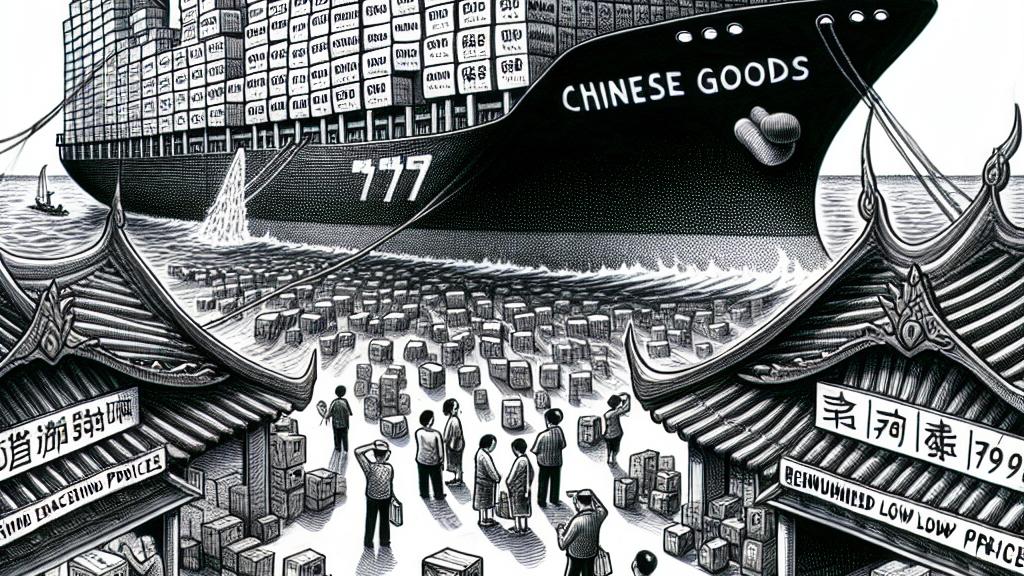Bangkok's Scare: The Chinese Goods Invasion!
Overview
- Thailand faces a significant surge of cheap, substandard Chinese goods that threatens local businesses.
- Temu's recent entry into the Thai market raises competition concerns and highlights the vulnerability of local industries.
- Government officials are navigating the complexities of protecting domestic interests while maintaining trade relations with China.

The Challenge of Chinese Products in Thailand
Thailand is currently experiencing an alarming influx of cheap, substandard goods from China, which poses serious challenges to local businesses. The situation has been exacerbated by the entry of Temu, a Chinese e-commerce platform known for its incredibly low prices. This platform allows for direct sales from manufacturers in China to Thai consumers, bypassing local retailers. As a result, many small and medium enterprises in Thailand are struggling to compete, leading to fears that they could fail altogether if this trend continues. This issue is not unique to Thailand; countries across Southeast Asia, including Malaysia and Vietnam, are witnessing similar pressures from Chinese imports, highlighting a regional concern.
Government Response and Economic Implications
In light of these concerns, Thai government officials have conveyed a commitment to preserving positive ties with China, which complicates any potential protective measures they could implement. Deputy Prime Minister Phumtham Wechayachai has explicitly stated that the government will not impose tariffs or trade barriers against Chinese goods, as such actions could provoke retaliatory measures that might harm Thai agricultural exports to China. However, this approach has drawn criticism from local politicians arguing for urgent actions to address the ongoing trade deficit, which has reached as much as $36 billion in recent years. These lawmakers are advocating for collective measures alongside other ASEAN nations, such as Malaysia and Indonesia, to confront the challenge of low-priced Chinese products together.
Balancing Consumer Interests with Local Business Protections
As the market landscape shifts with Temu's competitive pricing, questions arise regarding consumer safety and the quality of imported goods. While consumers might enjoy lower prices, the risk of subpar products raises serious concerns about public welfare. Recent data show that several Thai factories have closed, and production has declined substantially in various industrial sectors due to increased foreign competition. Prime Minister Srettha Thavisin has directed government agencies to regulate the quality of all imported products sold in Thailand, ensuring adherence to local laws designed to protect consumers and promote fair competition. The effectiveness of these measures will rely heavily on their implementation and enforcement, determining if Thai businesses can adapt to survive in the evolving e-commerce landscape.

Loading...